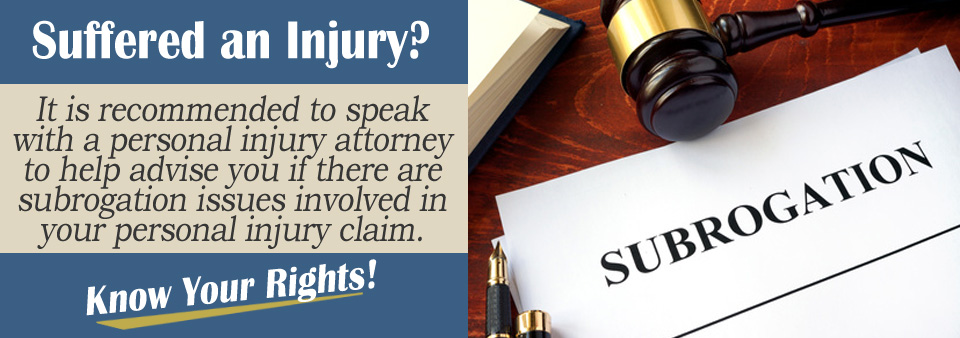Accidents can happen anywhere and at any time. Serious injuries can be financially damaging and it makes sense to make whoever caused the injuries through their own negligence pay compensation. That’s right is at the heart of a personal injury claim.
However, personal injury law does not exist to allow the injured accident victim profit from their injuries. Theoretically, the injured person might have their medical expenses paid by their own health insurer and at the same time claim these same expenses from the at-fault party’s insurer.
If successful, that would amount to a double payment. Subrogation rights in the state where the accident took place attempt to ensure that double payments do not take place.
They can be difficult to understand and it is important for an injured accident victim to have an experienced personal injury attorney to help advise them if there are subrogation issues involved in a claim.
When a Subrogation Action is Possible
If you don’t have health insurance of any kind, you will be liable for any medical bills that result from treating your injuries unless you can successfully present a claim against the person or party who you consider caused the accident and your injuries.
There are no subrogation issues in this situation as the only payment you might stand a chance of obtaining is a realistic amount for medical costs you would have had to pay out of your own pocket.
The situation of subrogation changes when you have an insurance policy of your own which can pay for some, or all, of the expenses you have had to forfeit as the result of an accident which was not your fault.
Understandably, your own insurer would be curious to know if the accident was your fault, or someone else’s and if the latter is the case, be keen to recover the amount they have already to pay out to cover what they have already paid you.
If you were also considering a private legal action against the at-fault party, citing negligence, state law on subrogation would protect your insurer against the chance that you receive compensation twice, once from your insurer and again from the at-fault party’s insurer.
Your own insurer may even stand in your place, i.e. subrogate you, to ensure that compensation is paid to them directly and not to you.

How Subrogation Can Get Complicated
Subrogation can get complicated when, as is often times the case, that the injured party is compensated for their injury by an insurance agreement of their own, or of their employer, or a government agency.
The insurer may attempt to use their subrogation rights to sue the at-fault party on your behalf, or take part in a lawsuit with you, to recover any payments that have already been paid to you.
Unless subrogation issues are addressed and dealt with, you could stand to lose out on the full payment you need to get you back on two feet. Injuries that are likely to have a substantial future component such as serious spinal or brain injuries can be affected by subrogation rights as it may be difficult to determine exactly what you and your insurer should be paid.
Make Sure You Have an Attorney if Subrogation Issues Arise
If you have not yet contacted an attorney after an accident in which you were injured through no fault of your own and have been told that there are subrogation issues involved in compensating you for your injuries, it would be wise to make sure you have legal representation.
An experienced personal injury attorney will understand what is at stake and help to ensure you get the compensation you deserve and do not lose out because of a faulty subrogation issue.